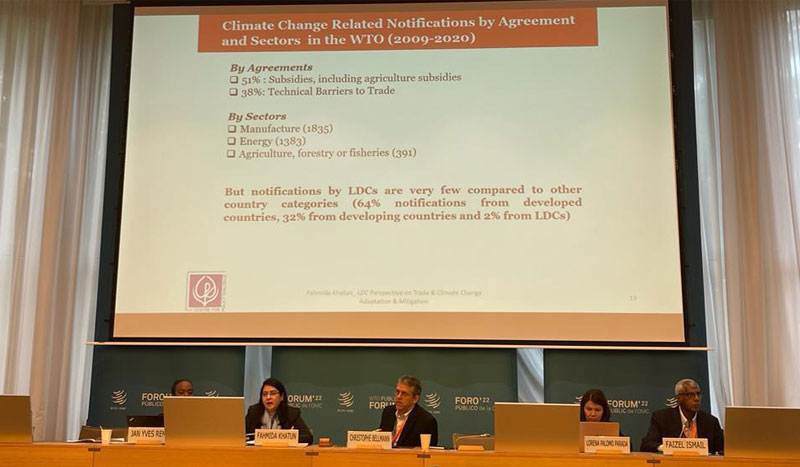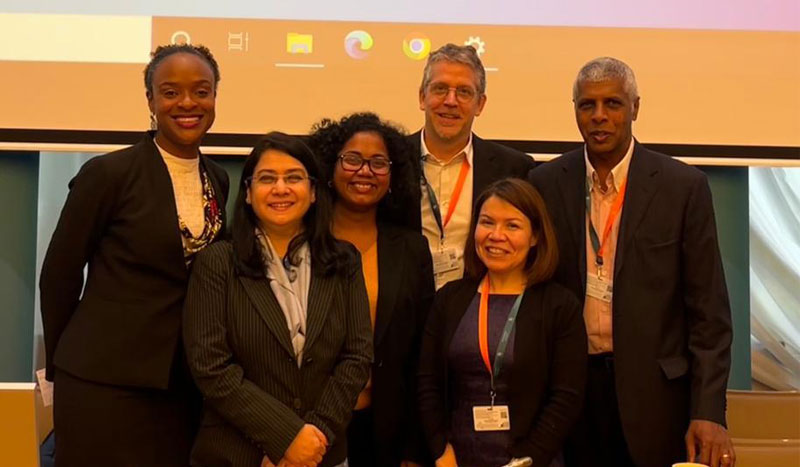
In the new environment-friendly and sustainable trade regime, there is a need for new international support measures (ISMs) for the least developed countries (LDCs). LDCs require increased support for capacity building and technology adoption in trade, and for small and medium enterprises (SMEs) and women-led businesses. Before COP26, many LDCs increased their voluntary commitments to reduce carbon emission in certain sectors; upon the condition of receiving external support, LDCs have targets for higher commitments. Dr Fahmida Khatun, Executive Director of the Centre for Policy Dialogue (CPD), noted these at a session on “Trade and Climate Change Mitigation and Adaptation: Regional Perspectives” held on 30 September 2022 during the World Trade Organization (WTO) Public Forum 2022 at the WTO, Geneva.
Dr Fahmida attended the session as a Speaker. The session was organised by the Forum on Trade, Environment and the SDGs (TESS), CPD, Bangladesh, the United Nation’s Economic Commission for Latin America and the Caribbean (ECLAC), and Shridath Ramphal Centre for International Trade Law, Policy and Services, Barbados (SRC).
The session aimed at contributing to the discussion on how to create a more resilient, sustainable and inclusive trading system and particularly to sub-theme 2 of the Public Forum 2022 on delivering a trade agenda for a sustainable future, by highlighting regional perspectives and priorities on the role of international trade cooperation in supporting climate mitigation and adaptation and climate-resilient sustainable development. While a lot of discussion is already taking place on the trade and climate change interface, the debate is still largely driven by concerns of more advanced economies in OECD countries with only limited attention paid to priorities in developing countries. It also aims to contribute to re-framing the debate by identifying priority area for action and recommendations for the multilateral trading system from the perspective of LDCs, the Caribbean region, South America and Africa.

The session saw presentations from speakers about their research on priorities of least developed countries, the Caribbean region, South America and Africa. Questions addressed at the session included—(i) What are the key climate change adaptation and mitigation priorities in developing countries? (ii) How can trade and trade-related policy measures support adaptation and mitigation efforts in those regions and advance climate-resilient development? and (iii) What are the implications for international cooperation on trade in general and for the WTO in particular?


